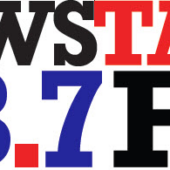Ed Sheeran Says Band Aid Is Using His Voice Without Permission
Written by party1057 on November 19, 2024
Last week, supergroup Band Aid – organized by Sir Bob Geldof and Ultravox’s Midge Ure – announced that they would be releasing an “ultimate mix” of festive charity single “Do They Know It’s Christmas?” for its 40th anniversary. The new release will feature vocals from across the four recorded versions from 1984, 1989, 2004 and 2014, including takes from Bono, George Michael, Harry Styles (as part of One Direction) and more.
Ed Sheeran performed on the 2014 edition of the single alongside Coldplay, Sam Smith, Rita Ora and more. He has since said that his vocals are being used without his permission on the latest remix.
Writing on his Instagram Stories, Sheeran said, “My approval wasn’t sought on this new Band Aid 40 release. Had I had the choice I would have respectfully declined the use of my vocals.”
He added: “A decade on and my understanding of the narrative associated with this has changed, eloquently explained by @fuseodg. This is just my personal stance, I’m hoping it’s a forward-looking one. Love to all x.”
Sheeran was quoting a post by Ghanian-English afrobeats musician Fuse ODG, who says he declined to take part in the Band Aid 30 version back in 2014 because he “recognized the harm initiatives like it inflict on Africa”.
He wrote, “While they may generate sympathy and donations, they perpetuate damaging stereotypes that stifle Africa’s economic growth, tourism, and investment, ultimately costing the continent trillions and destroying its dignity, pride and identity.”
“By showcasing dehumanizing imagery, these initiatives fuel pity rather than partnership, discouraging meaningful engagement. My mission has been to reclaim the narrative, empowering Africans to tell their own stories, redefine their identity and position Africa as a thriving hub for investment and tourism.”
“Today, the diaspora drives the largest funds back into the continent, not Band Aid or foreign aid providing that Africa’s solutions and progress lies in its own hands.”
The song was first released in 1984 following a report by the BBC into famine in Ethiopia, but has since been criticized as an example of white-savior narrative towards issues in Africa
 Party 105.7
Party 105.7  Newstalk 103.7
Newstalk 103.7